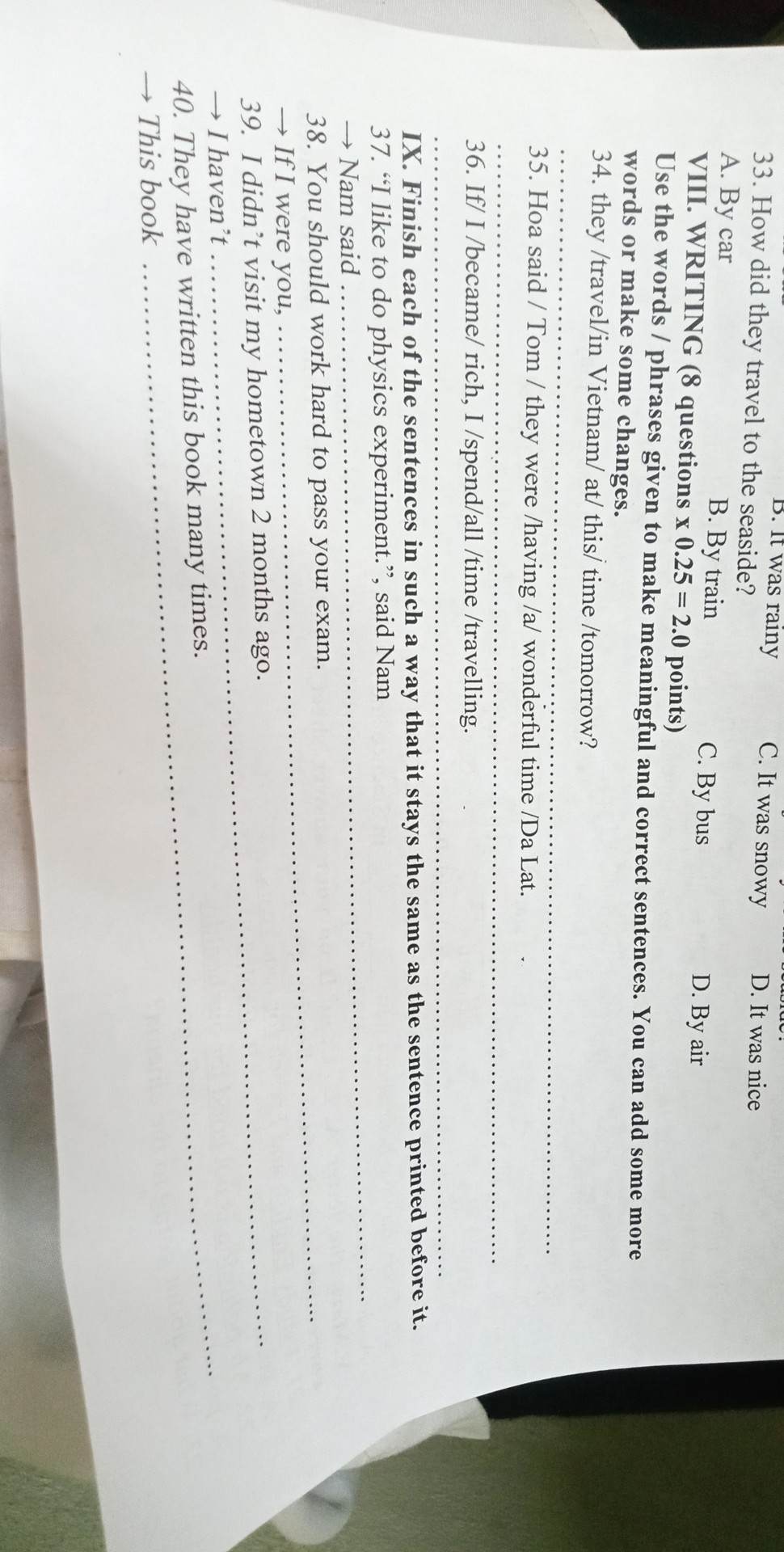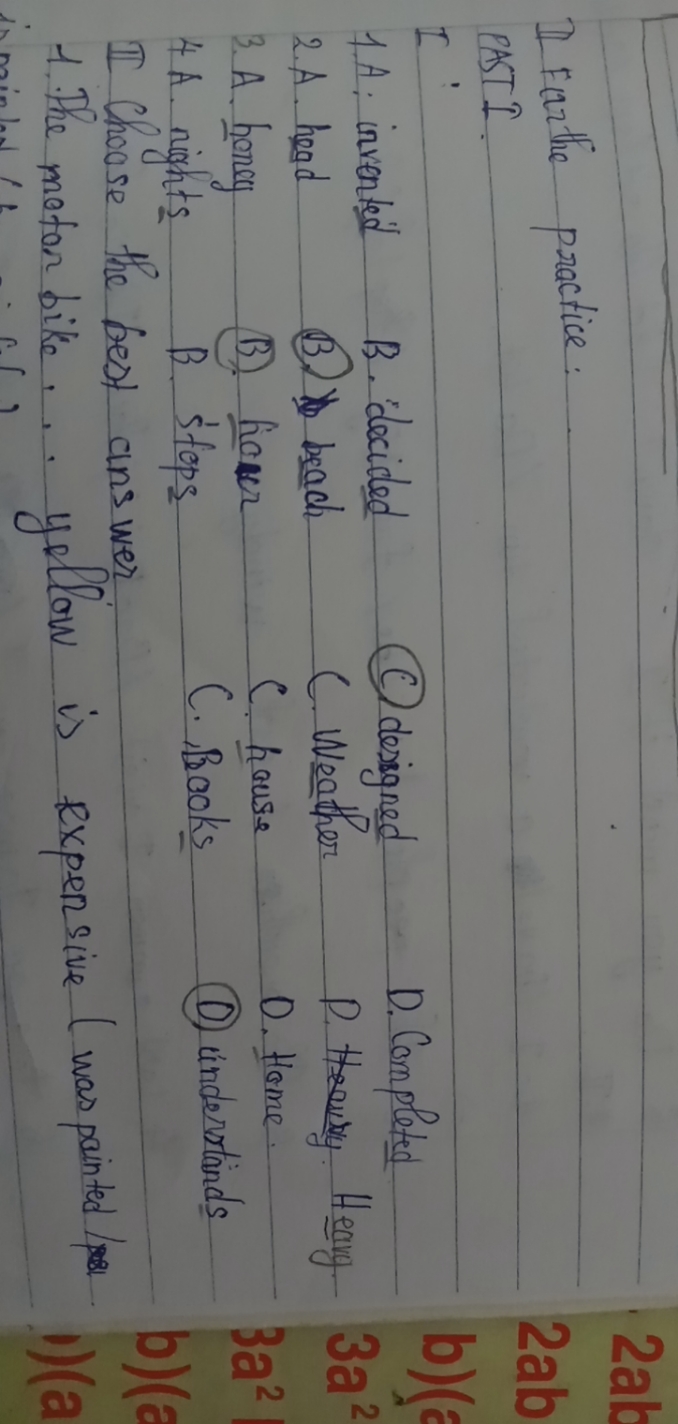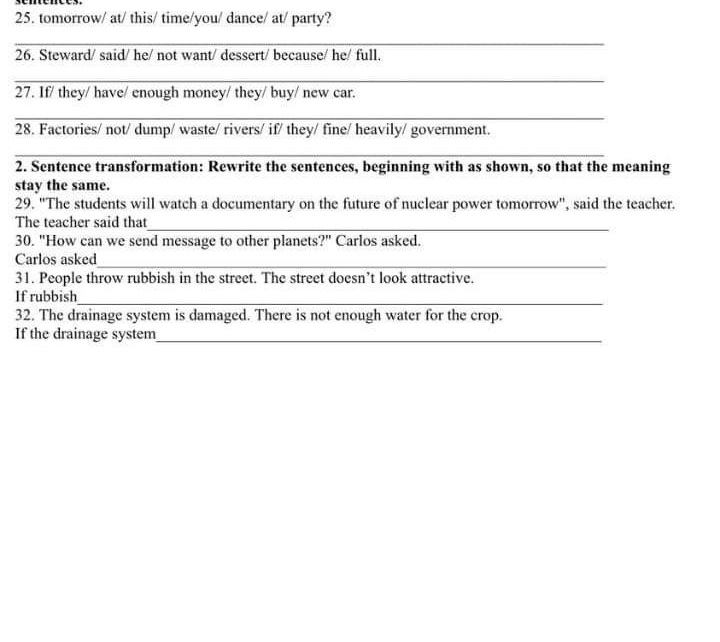Tiếng Anh
-
 Nguyen Huy
Tiếng Anh
11 3 câu trả lờiThích Bình luận Xem thêm 2 câu trả lời
Nguyen Huy
Tiếng Anh
11 3 câu trả lờiThích Bình luận Xem thêm 2 câu trả lời -
 Trần Nguyễn Tường Phi
Tiếng Anh
8 5 câu trả lờiThích Bình luận Xem thêm 4 câu trả lời
Trần Nguyễn Tường Phi
Tiếng Anh
8 5 câu trả lờiThích Bình luận Xem thêm 4 câu trả lời -
 Ngọc Phạm
Tiếng Anh
6Thích Bình luận
Ngọc Phạm
Tiếng Anh
6Thích Bình luận -
 Thanh Hải Đỗ
Tiếng Anh
7 3 câu trả lờiThích Bình luận Xem thêm 2 câu trả lời
Thanh Hải Đỗ
Tiếng Anh
7 3 câu trả lờiThích Bình luận Xem thêm 2 câu trả lời -
 亗тяươиɢ↭тяí↭кнαиɢ︵²ᵏ⁸
Tiếng Anh
Thích Bình luận
亗тяươиɢ↭тяí↭кнαиɢ︵²ᵏ⁸
Tiếng Anh
Thích Bình luận -
 Tuyến Văn
Tiếng Anh
1 câu trả lờiThích Bình luận
Tuyến Văn
Tiếng Anh
1 câu trả lờiThích Bình luận -
 Thịnh Trí
Tiếng Anh
8 3 câu trả lờiThích Bình luận Xem thêm 2 câu trả lời
Thịnh Trí
Tiếng Anh
8 3 câu trả lờiThích Bình luận Xem thêm 2 câu trả lời -
 Quỳnh Nguyễn
Tiếng Anh
6 3 câu trả lờiThích Bình luận Xem thêm 2 câu trả lời
Quỳnh Nguyễn
Tiếng Anh
6 3 câu trả lờiThích Bình luận Xem thêm 2 câu trả lời -
 Lê Thị Hà
Tiếng Anh
8 3 câu trả lờiThích Bình luận Xem thêm 2 câu trả lời
Lê Thị Hà
Tiếng Anh
8 3 câu trả lờiThích Bình luận Xem thêm 2 câu trả lời -
 Hà Vi
Tiếng Anh
2 câu trả lờiThích Bình luận Xem thêm 1 câu trả lời
Hà Vi
Tiếng Anh
2 câu trả lờiThích Bình luận Xem thêm 1 câu trả lời -
 Bảo Lê
Tiếng Anh
3 câu trả lờiThích Bình luận Xem thêm 2 câu trả lời
Bảo Lê
Tiếng Anh
3 câu trả lờiThích Bình luận Xem thêm 2 câu trả lời -
 Bích Trâm
Tiếng Anh
5 3 câu trả lờiThích Bình luận Xem thêm 2 câu trả lời
Bích Trâm
Tiếng Anh
5 3 câu trả lờiThích Bình luận Xem thêm 2 câu trả lời




























